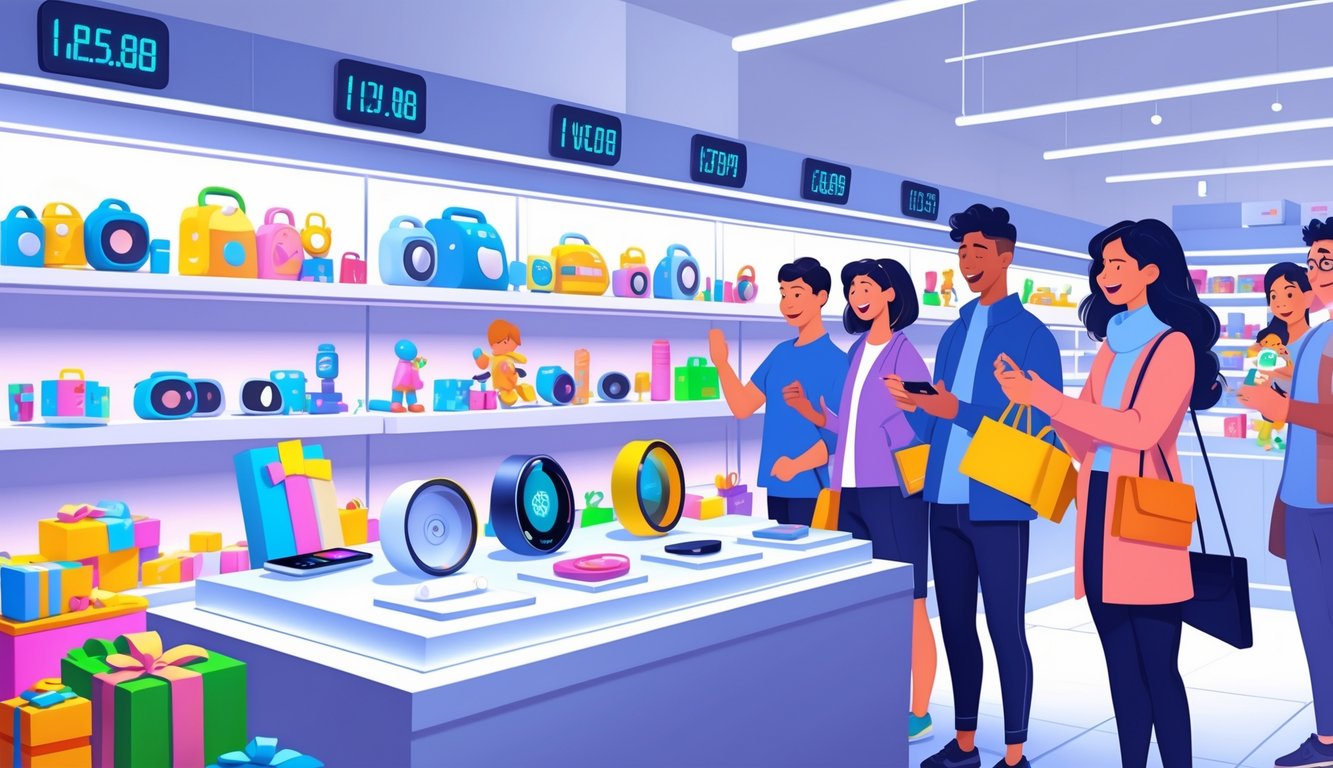
The Future of Holiday Gifting Trends
So, I keep reading these “future trend” articles and none of them feel real. Everyone’s obsessed with AI suggestions and gadgets, but my nephew just wants whatever lets him watch YouTube. Phones, tablets, Steam Decks—these are pushing aside board games and plastic dinosaurs. Kind of wild.
Upcoming Innovations to Watch
AI is supposed to “solve” gift shopping. Bots like Giftbox.a or Photutorial are apparently “digital elves” (sure, whatever that means), but they’d get roasted in my family group chat. Steam Deck? Two years ago, nobody cared. Now everyone wants cloud gaming on a road trip. My cousin’s tablet even recommended gifts to him. That’s either genius or a privacy nightmare.
Every article predicts smart home gadgets and wireless headphones will dominate. CES says 89% of U.S. adults plan to buy tech this year. Meanwhile, my neighbor’s kid traded his toy robot for a phone with nothing but YouTube. The best tech is apparently whatever keeps kids quiet in the car. Nobody surveys for that, but they should.
Predicted Shifts in Consumer Preferences
Suddenly, everyone’s obsessed with personalization—custom engraving, AI picks, maybe holographic wrapping? If I see one more “gift experience” ad, I’m just giving out socks. Teak and Twine says personalization “creates memories,” but try giving a custom phone case to someone who just switched phones.
People want gadgets that multitask: headphones as fitness trackers, tablets as workstations. Flexibility wins over novelty now. Budget talk is everywhere in Forbes—everyone’s chasing “value per dollar” and caring less about whether a gift fits under the tree. Trends are more “tech my parents don’t get” than toys, but hey, at least we all get to act like we’re ahead of the curve.
Frequently Asked Questions
Did anyone expect headphones to outsell teddy bears? Me neither. Tech gadgets are squeezing out classics. Retailers, families, even kids talk about fun, learning—and privacy—differently now. Good luck finding a Furby that isn’t covered in dust in a clearance bin.
What’s driving the surge in tech gift purchases compared to traditional toys?
Just two years ago, parents in my PTA argued whether coding robots counted as “real gifts.” Now they’re up at 2 a.m. refreshing game console stock. Big stores launch “STEM Holiday Zones” instead of toy aisles. Industry analyst Maya Tang (NPD Group) says 60% of shoppers put interactive electronics at the top of their lists.
It’s not just hype. Recurring updates, streaming accessories, “smart” plushies—these are the new normal. Tried explaining a puzzle box to my cousin’s six-year-old and he just wanted to know where the charging port was.
Can you shed some light on how tech gifts are impacting children’s playtime?
Screens are everywhere. My one-year-old nephew grabs remotes before teddy bears. Pediatricians keep begging us to skip high-tech toys, saying classic ones are better for imagination and social skills, but nobody listens when the new hot thing drops.
Every kid on my block is building Minecraft worlds at birthday parties. Face-to-face play? Not as much as I’d like. My neighbor insists her daughter learns “problem-solving” from unboxing videos. That’s… a skill, I guess.
How do the benefits of tech-focused gifts compare with those of classic toys?
Honestly, both sides get overhyped. Tech toys promise “future-ready” skills, but my old wooden blocks never needed a subscription. NAEYC researchers say open-ended, screen-free play is best for little kids, especially babies. Touchscreens as babysitters? Not great.
But try telling that to someone buying a smartwatch for language learning. Some kids thrive with gadgets, but who knows which skills matter ten years from now. We’re all guessing.
What kind of long-term effects could this shift towards tech gifting have on the toy industry?
If Barbie has Bluetooth, old-school toymakers are scrambling. A Hasbro rep at Toy Fair grumbled to me about “shelf visibility” dropping for action figures thanks to AR kits and digital pets. Even Pokémon cards have QR codes now. I can’t keep up.
Retail consultants are blunt. Stores give more space—like 15-20% more—to electronics over dolls or board games. I’ve seen the charts. If a company skips screens, apps, or at least an on/off switch, they’re headed for the nostalgia bin.
Are there any particular tech gifts that are leading the pack in sales right now?
Short answer: yes, but everyone disagrees on what counts as “tech.” (I don’t think fidget spinners with LEDs count, but my niece disagrees.) YouGov says smartphones, gaming consoles, VR starter kits are top sellers, but preschoolers still get tablets in foam cases.
Last holiday, Amazon’s Echo Dot Kids outsold every globe in my cousin’s store. LeapPad? Didn’t even make it to clearance. Plush unicorns, untouched, stacked in the corner.
How is the trend of gifting tech impacting the way we think about education and development?
Honestly, this whole thing is a mess. I used to think, “Oh, just hand a kid an app and boom, genius unlocked,” but then I heard Dr. Sophia Lin (she’s some early childhood expert, apparently?) ranting about how kids actually need, like, cardboard, mud, and a good chunk of boredom. I mean, she’s probably right, but then you scroll through Instagram and there’s always some company hyping up their coding robot or those “AI-powered” flashcards, promising your kid will basically land a six-figure job by age twelve. Sure.
And parents? They just keep buying this stuff. I don’t know, is it hope, guilt, or just not wanting to deal with whining? Some families act like iPads are tutors, while others just want five minutes of peace and quiet. Which one’s right? Who knows. Feels like we’ve all been arguing about this forever and nobody’s budging.